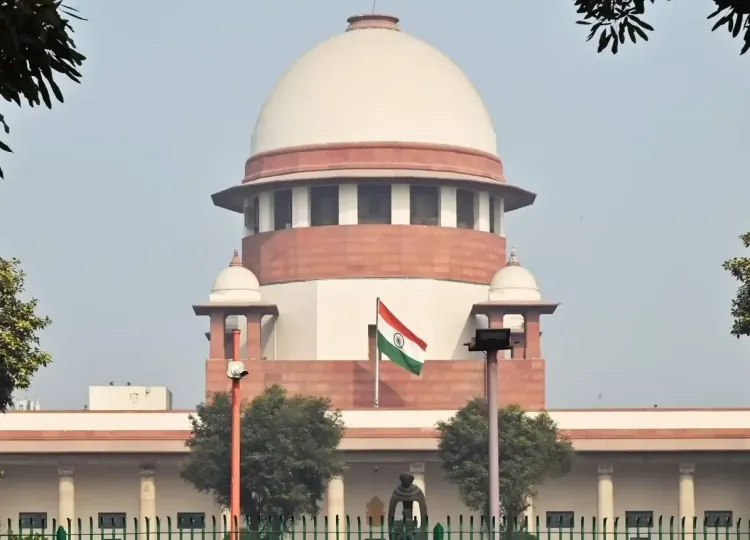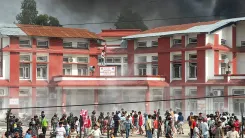Supreme Court Prohibits New Suits Under Places of Worship Act Until Further Notice

New Delhi, Dec 12 (NationPress) The Supreme Court declared on Thursday that no new lawsuits shall be initiated under the Places of Worship Act throughout the country, and that in the existing cases, no conclusive or effective rulings shall be delivered until further directives from the Apex Court.
A Special Bench led by CJI Sajiv Khanna instructed the Union government to submit its response within four weeks regarding a series of petitions questioning the legitimacy of the 1991 Act, which prohibits the initiation of legal actions to reclaim places of worship or alter their status as it was on August 15, 1947.
The Bench, which also included Justices Sanjay Kumar and K. V. Viswanathan, designated lawyers Kanu Agarwal, Vishnu Shankar Jain, and Ejaz Maqbool as nodal counsels to compile pleadings for the Union, petitioners, and supporters of the Act, respectively.
In March 2021, a Bench led by then CJI S.A. Bobde requested the Centre's response to a plea submitted by advocate Ashwini Upadhyay, contesting certain provisions of the law.
The plea argued, "The 1991 Act was enacted under the pretext of 'Public order', a matter reserved for states (Schedule-7, List-II, Entry-1), and the 'places of pilgrimages within India' are also state matters (Schedule-7, List-II, Entry-7). Thus, the Centre lacks authority to legislate this law. Furthermore, Article 13(2) disallows the State from enacting laws that infringe upon fundamental rights, yet the 1991 Act undermines the rights of Hindus, Jains, Buddhists, and Sikhs to reclaim their 'places of worship and pilgrimages' that were destroyed by invaders.
It also noted, "The Act excludes the birthplace of Lord Rama but includes the birthplace of Lord Krishna, despite both being incarnations of Lord Vishnu, the creator venerated globally, making it arbitrary.
Meanwhile, several applications for intervention/impleadment have been submitted to the Apex Court urging the dismissal of petitions against the Places of Worship Act.
The Managing Committee of Varanasi's Gyanvapi Mosque stated that the "outcomes of deeming the 1991 Act unconstitutional will have severe repercussions, undermining the rule of law and communal harmony".
It asserted that an Article 32 petition challenging a legislative act must demonstrate the unconstitutionality of its provisions based on constitutional principles, and that rhetorical arguments seeking retribution against historical rulers cannot form the basis for a constitutional challenge.
"Currently, there are 20 suits pending before various courts in Varanasi aiming to nullify the protections granted by the 1991 Act and alter the character of the Gyanvapi Mosque, restricting Muslim access to the mosque," it noted.
In a similar application, the Committee of Management of Mathura's Shahi Masjid Eidgah argued that the law was enacted by Parliament for the nation's advancement and has endured for over 33 years.
The mosque committee emphasized that the resolution of petitions against the Places of Worship Act is likely to significantly impact the resolution of its pending special leave petitions before the Apex Court regarding the dismissal of their application filed under Order VII Rule 11 of the CPC (Code of Civil Procedure) and the ongoing lawsuits against the mosque committee.
The Management Committee of Shahi Masjid Eidgah is involved in 17 different suits currently being adjudicated by the Allahabad High Court, where claimants are asserting ownership over the land on which the Shahi Masjid Eidgah stands, also seeking the removal of the mosque structure, asserting it was built over Krishna Janmsthan.








